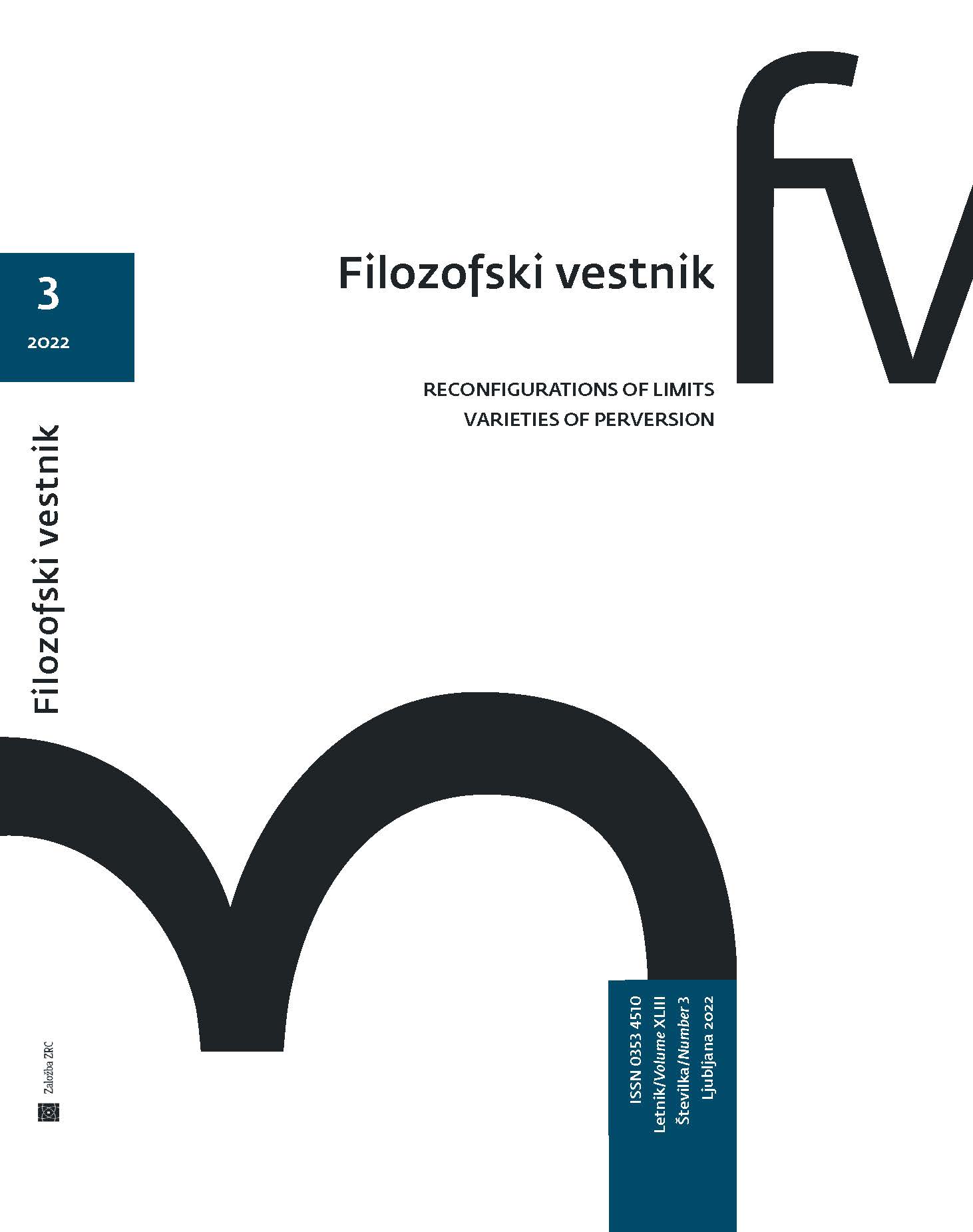The Pleasures of Unpleasure: Jacques Lacan and the Atheism Beyond the “Death of God”
DOI:
https://doi.org/10.3986/fv.43.3.08Keywords:
Lacan, atheism, reality principle, unpleasure, tragedy, AntigoneAbstract
Although the desire to be free from God springs from humanity’s wish to enjoy pleasure without restraint, Lacan observes that humans remain neurotic and unhappy. That is because the prevailing “dead of God” form of atheism relies on the denial of a father/god, a negation that inadvertently replicates the logic of religion. Lacan, by contrast, grounds his atheism in a theory of pleasure that recognizes the role of “unpleasure” in breaking the tedium of easy, unlimited gratification. Turning to Greek tragedy, Lacan shows how the ancient world used the gods as creators of “unpleasure” to generate human jouissance. The figure of Antigone, in particular, shows how the divine function can fulfill “the true formula of atheism,” which is not “God is dead,” but rather, Lacan affirms, that “God is unconscious.”
Downloads
References
Butler, Judith, Antigone’s Claim: Kinship Between Life and Death, New York, Columbia University Press, 2000.
Caputo, John D., The Prayers and Tears of Jacques Derrida: Religion Without Religion, Bloomington, Indiana University Press, 1997.
Copjec, Joan, Imagine There’s No Woman: Ethics and Sublimation, Cambridge (MA), MIT Press, 2002.
Dostoevsky, Fyodor, The Karamazov Brothers, trans. I. Avsey, Oxford, Oxford University Press, 2008.
Freud, Sigmund, Beyond the Pleasure Principle and Other Writings, trans. J. Reddick, London, Penguin, 2003.
Freud, Sigmund, Moses and Monotheism, trans. K. Jones, New York, Vintage, 1955.
Freud, Sigmund, The Interpretation of Dreams, trans. J. Strachey, New York, Basic Books, 2010.
Freud, Sigmund, Totem and Taboo, trans. J. Strachey, London and New York, Routledge, 2001.
Hägglund, Martin, Radical Atheism: Derrida and the Time of Life, Stanford, Stanford University Press, 2008.
Harris, Oliver, Lacan’s Return to Antiquity: Between Nature and the Gods, London and New York, Routledge, 2017.
Irigaray, Luce, Speculum of the Other Woman, trans. G. C. Gill, Ithaca, Cornell University Press, 1985.
Lacan, Jacques, Écrits: The First Complete Edition in English, trans. B. Fink, New York and London, W.W. Norton & Company, 2006.
Lacan, Jacques, The Four Fundamental Concepts of Psycho-Analysis, ed. J.-A. Miller, trans. A. Sheridan, Harmondsworth, Penguin, 1994.
Lacan, Jacques, The Seminar of Jacques Lacan, Book II: The Ego in Freud’s Theory and in the Techniques of Psychoanalysis, 1954-1955, ed. J.-A. Miller and J. Forrester, trans. Sylvana Tomaselli, Cambridge, Cambridge University Press, 1988.
Lacan, Jacques, The Seminar of Jacques Lacan, Book VII: The Ethics of Psychoanalysis, 1959-1960, ed. J.-A. Miller, trans. Dennis Porter, New York and London, W.W. Norton & Company, 1992.
Lacan, Jacques, The Seminar of Jacques Lacan, Book VIII: Transference, ed. J.-A. Miller, trans. B. Fink, Cambridge UK and Malden MA, Polity, 2015.
Lacan, Jacques, The Seminar of Jacques Lacan, Book XVII: The Other Side of Psychoanalysis, ed. J.-A. Miller, trans. R. Grigg, New York and London, W.W. Norton & Company, 2007.
Lacan, Jacques, The Seminar of Jacques Lacan, Book XX: Encore: On Feminine Sexuality, The Limits of Love and Knowledge, 1972-1973, ed. J.-A. Miller, trans. B. Fink, New York and London, W.W. Norton & Company, 1999.
Nietzsche, Friedrich, The Gay Science, trans. W. Kaufmann, New York, Vintage, 1974.
Watkin, Christopher, Difficult Atheism: Post-Theological Thinking in Alain Badiou, Jean-Luc Nancy and Quentin Meillassoux, Edinburgh, University of Edinburgh Press, 2011.
Žižek, Slavoj, “God is Dead, but He Doesn’t Know It: Lacan plays with Bobok”, 4 April 2009, Lacan.com, accessed 23 February 2022, https://www.lacan.com/essays/?p=184.
Zupančič, Alenka, “Ethics and Tragedy in Lacan”, in ed. J.-M. Rabaté, The Cambridge Companion to Lacan, Cambridge, Cambridge University Press, 2003, pp. 173–190.
Downloads
Published
How to Cite
Issue
Section
License
Copyright (c) 2022 Authors

This work is licensed under a Creative Commons Attribution-NonCommercial-NoDerivatives 4.0 International License.
Authors guarantee that the work is their own original creation and does not infringe any statutory or common-law copyright or any proprietary right of any third party. In case of claims by third parties, authors commit their self to defend the interests of the publisher, and shall cover any potential costs.
More in: Submission chapter





